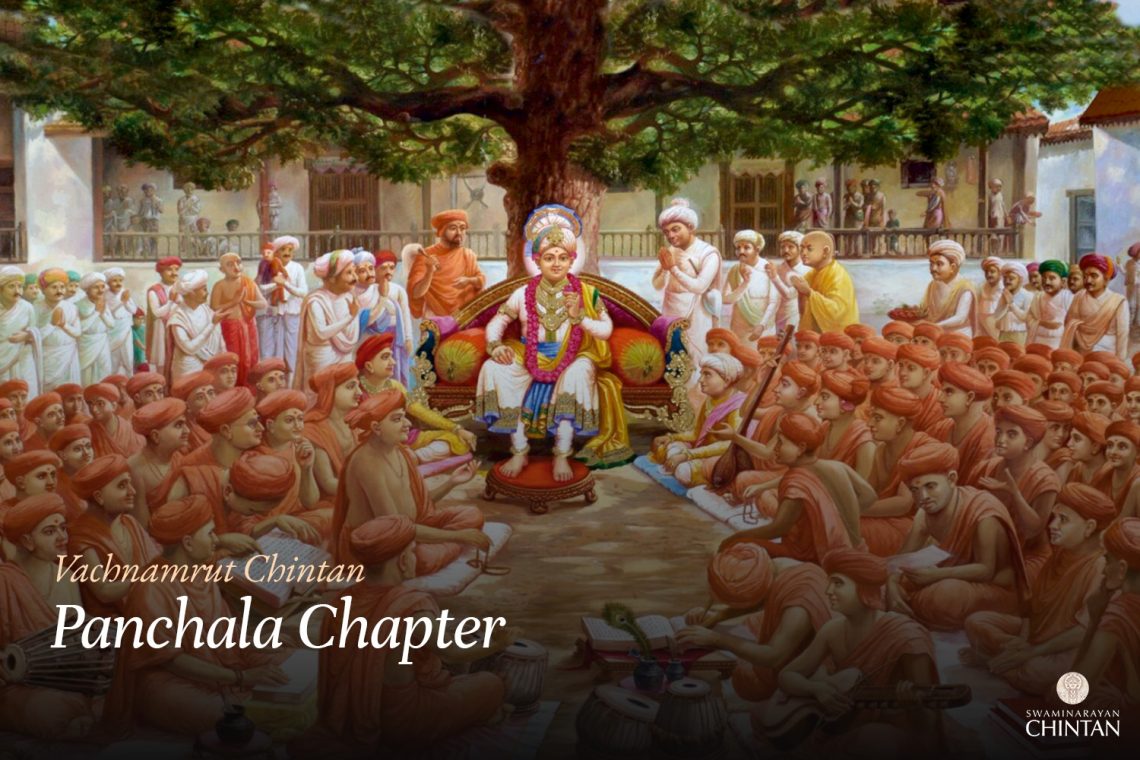Central Insights:
- Where to maintain self-respect and where to adopt humility.
Main Points:
- It is not advisable to maintain self-respect before Bhagwan and His devotees. It is better to be humble before them.
- It is important to maintain self-respect in front of those who are opposed to Satsang (holy fellowship) and speak ill of Bhagwan or great Sadhus. In such cases, one should not act humbly.
Commentary:
In this Vachanamrut, Swayamprakashanand Swami asks Maharaj the question: “Where is it advisable to maintain self-respect, and where is it not? Where is it advisable to be humble, and where is it not?” In response, Maharaj explains that it is important to maintain self-respect in front of someone who is opposed to Satsang and speaks ill of Parameshwar (Bhagwan) or great Sadhus.
The question arises: Why should we not be humble even in front of someone who is hostile? After all, humility is considered a virtue. So why maintain self-respect and oppose such a person? The reasoning is that when we act humbly toward someone or show them respect, it implies that we accept their outward behavior, inner beliefs, and their character as being acceptable. External humility and respect may be separate, but when we show humility or give respect, it indicates that, deep down, we acknowledge their personality or attitude as something great and worthy of emulation. This is what it conveys internally.
In the Narad Bhakti Sutra, it is said that a devotee shows respect toward the one whom they revere. Therefore, when someone opposes Bhagwan, Satsang, or great Sadhus, and if we act humbly toward them or show them respect, it implies that we are encouraging their attitude. It suggests that we approve of their opposition to Bhagwan, Satsang, or the Guru, and that it pleases us. This reveals a flaw in our devotion, as it is not pure devotion.
Practicing devotion is important, but more significant is where the heart’s devotion truly lies. Such situations clarify one’s devotion. Therefore, there is no benefit in being humble before someone like that; instead, maintaining self-respect is advantageous. This is because it strengthens our determination towards our Ishtadev (cherished deity), Satsang, and Sadhus, and opposing those who are adversarial is a sign of firmness in conviction. Furthermore, it is the true proof of the inner conviction we have developed. Maharaj adds that if someone speaks ill of Satsang, Bhagwan, or a great Sadhu, we should not tolerate it but respond with words that are sharp as arrows. This ensures that the person won’t dare to speak against us again. If we do not possess the strength to confront them, then we should leave that place immediately, rather than sitting there smiling and listening quietly, which would reflect a false sense of generosity.
Moreover, Maharaj explains that we should not maintain self-respect before Bhagwan’s devotees. Humility before them is the proper approach. This is because, when we respect a devotee, we are essentially displaying our devotion towards Bhagwan. In devotion towards Bhagwan or in humility, many other factors may influence our behavior. However, when we act with goodwill towards a devotee, it is solely due to our devotion to Bhagwan. The more respect we show to devotees or the more humble we are before them, the more we demonstrate our love and reverence for Bhagwan from the heart. That is why Maharaj says that it is proper to be humble before devotees.
Glossary
| Satsang – Holly Fellowship |
| Parameshwar – Supreme God A term used to refer to the highest form of God, especially Bhagwan Swaminarayan in the context of the Vachanamrut. |
| Ishtadev – Chosen deity The personal deity or form of God that a devotee worships and meditates upon, often chosen according to individual devotion. |
| Narad Bhakti Sutra – A scripture describing devotion written by Sage narad |
| Bhakti – Loving worship and service to Bhagwan |

